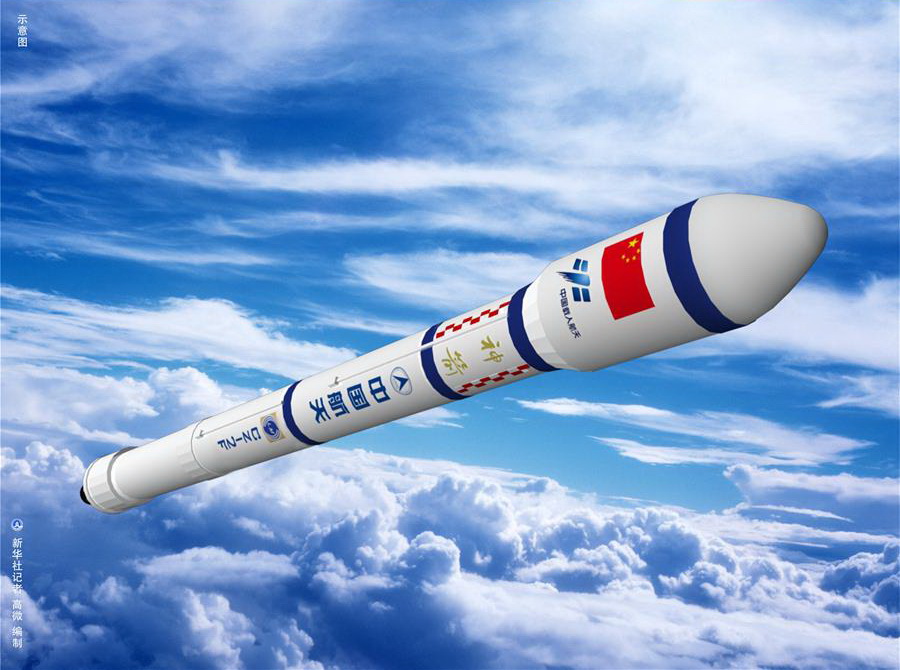


In September, the U.S. Committee on Science, Space, and Technology held a space subcommittee hearing entitled: Are We Losing the Space Race to China? The hearing was held because China’s space program is making major advances and breakthroughs, and the U.S. is concerned about China’s steady and rapid progress.
The U.S. views China’s progress as a threat to peace and prosperity. Subcommittee Chairman Brian Babin blamed the outgoing administration for creating a leadership void that has “facilitated the ascendance of China as a leading space faring nation.” He expressed concern about China’s steady and measured progress, and even greater concern about China’s ambitious long-term goals. The consequences have already been significant, he said, and warned that the future prosperity of the U.S. “depends on our leadership in space.”
The U.S. can only blame itself for falling behind and creating a more competitive environment. China has expressed willingness to cooperate with other nations, including the U.S. In fact, Babin recognized China’s cooperative approach as something that has “strengthened [China’s] soft power and international standing.” But the U.S. Congress banned scientific collaboration with China in 2011, forcing China to develop space programs of their own. Once the International Space Station is retired in 2024, China will be the only nation left with a permanent presence in space.
Unless U.S. foreign policy changes to include rather than exclude China, collaboration between China and NASA is unlikely in or before 2024. NASA has repeatedly expressed willingness to cooperate with China, and the second Civil Space Dialogue between China and the U.S. to enhance cooperation on space-related issues concluded in late October. But the relationship is mired by counterproductive U.S. legislation that seeks sustain U.S. dominance by excluding China.
U.S. foreign policy is premised on the assumption that America is exceptional. Peace and prosperity depend on U.S. leadership, and the U.S. should set the rules in space. The ideology that America has a unique mission to transform the world was voiced by members of Congress at the hearing. For example, Babin said that space should become a domain that is centered on American ideologies and principles, and Lamar Smith, the Committee Chairman, said that the U.S. must reassert its leadership and warned China does not hold the same values.
The experts who testified before Congress all agreed that China presents a challenge. Dennis Shea, Chairman of the U.S.-China Economic and Security Review Commission, said that China’s approach “will open up opportunities for Beijing.”Mark Stokes, Executive Director of the Project 2049 Institute, said that from a technology perspective, China is closing the gap. Dean Cheng, Senior Research Fellow at the Asian Studies Center at the Heritage Foundation, expressed concern about China’s plans to put a man on the moon.“The day that the Chinese are able to do the same thing, is the day that American uniqueness will be openly challenged and Chinese prestige will be put on the same level as that of the United States,” he said. Congress was warned to take note of China’s progress.
Concern about China gaining too much ground is part of larger narrative that says the U.S. is in decline. Regardless if that is the case, China’s gains are real, and the perception of U.S. decline is real. While the two sides are not de facto opponents, the new environment necessitates a new framework for cooperation. For example, Cheng argued that China is trying to push its sovereignty into international common spaces, including space. He warned that if the U.S. does not lead in space, then it will find itself operating “within the Chinese framework.” The concept of at least two competing frameworks is evidence that a new framework for cooperation is needed.
A new framework of cooperation is not possible if China’s progress is viewed as a challenge. In October, People’s Daily published an article in Chinese entitled, “U.S. Media Says China is Challenging the U.S. in Space – Analysts: America’s Guilty Conscience.” The article pointed out that despite being decades behind the U.S.in terms of space programs, China is catching up by taking advantage of the latest technology; for example, Chinese quantum technology, which Congressman Don Beyer called “revolutionary technology.” But the congressman was not praising China’s progress. Congressman James Bridenstine, for example, said that the U.S. “must treat China’s actions in space as the threat that they are.”
NASA’s role in space should be space exploration, not Cold War politics. While the role of NASA during the Cold War was to demonstrate U.S. preeminence and technological prowess over the Soviet Union, the Cold War is history. Cold War mentality by certain members of the U.S. Congress should not be allowed to creep into the modern China-U.S. relationship. Space exploration is an area of common interest, and the world can benefit greatly from China’s pragmatic progress. NASA’s quiet effort to work with China in space is the right approach for future peace and prosperity. As the experts pointed out, China and the U.S. are not competing in space. However, if U.S. foreign policy does not wise up, then future cooperation is unlikely.

 Who Will Fit The Chinese Roles In Game Of Thrones?
Who Will Fit The Chinese Roles In Game Of Thrones? China's Hubei Shennongjia added to World Heritage List
China's Hubei Shennongjia added to World Heritage List Cute Dog At Fruit Stand Becomes Latest Internet Sensation
Cute Dog At Fruit Stand Becomes Latest Internet Sensation Top 10 livable Chinese cities
Top 10 livable Chinese cities The last primitive tribe in China
The last primitive tribe in China China's first intelligent security robot debuts in Chongqing
China's first intelligent security robot debuts in Chongqing A Total of 3,552 Subscribers Vanish In Two Days; YouTube Closes All Doors to Users’ Inquiries
A Total of 3,552 Subscribers Vanish In Two Days; YouTube Closes All Doors to Users’ Inquiries Out of this world! Futuristic UFO-shaped yacht has its own garden and a stunning underwater viewing deck
Out of this world! Futuristic UFO-shaped yacht has its own garden and a stunning underwater viewing deck An old tea house in Chengdu
An old tea house in Chengdu Furious Customer Crushes All the Buns from Vendor Just Because He Was Given the Wrong Flavor
Furious Customer Crushes All the Buns from Vendor Just Because He Was Given the Wrong Flavor